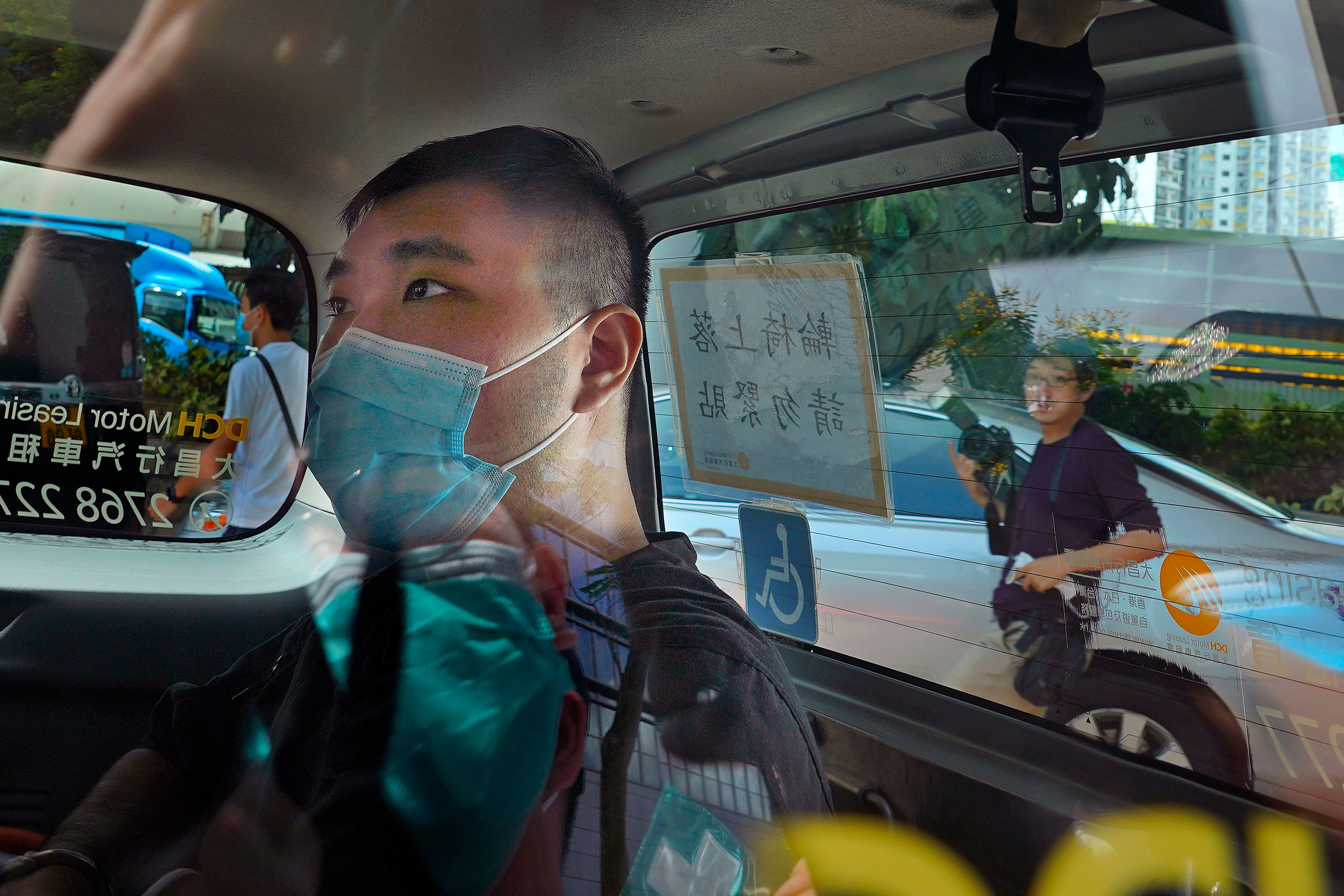Hong Kong protester who crashed motorcycle into police pleads not guilty in first security law trial
Tong Ying-kit was arrested last July and has been denied a trial by jury, a departure from Hong Kong’s common law traditions

Your support helps us to tell the story
From reproductive rights to climate change to Big Tech, The Independent is on the ground when the story is developing. Whether it's investigating the financials of Elon Musk's pro-Trump PAC or producing our latest documentary, 'The A Word', which shines a light on the American women fighting for reproductive rights, we know how important it is to parse out the facts from the messaging.
At such a critical moment in US history, we need reporters on the ground. Your donation allows us to keep sending journalists to speak to both sides of the story.
The Independent is trusted by Americans across the entire political spectrum. And unlike many other quality news outlets, we choose not to lock Americans out of our reporting and analysis with paywalls. We believe quality journalism should be available to everyone, paid for by those who can afford it.
Your support makes all the difference.The first person to stand trial under Hong Kong’s national security law pleaded not guilty to charges of terrorism and inciting secession as his trial began on Wednesday.
Tong Ying-kit was arrested on 1 July last year, just a day after the controversial national security law came into effect.
Mr Tong, 24, was accused of driving his motorcycle into a group of police officers during protests while bearing a flag with the slogan “Liberate Hong Kong, the revolution of our times.”
The slogan is now deemed illegal under the security law, with the city government saying last year that it suggests separatism or subversion.
Apart from charges of terrorism and inciting secession, he also faces an alternative charge of dangerous driving causing grievous bodily harm. Mr Tong has pleaded not guilty to all charges.
His case is being watched keenly in Hong Kong because it could indicate how courts will deal with other cases under the law.
Al Jazeera’s Divya Gopalan, who is reporting from Hong Kong, said that many are “watching for clues on how security cases will be conducted” and there are already concerns “this case will undermine the rule of law in Hong Kong.”
Mr Tong’s case has been seen as a departure from Hong Kong’s common law traditions because he has been denied bail and the Court of Appeal on Tuesday upheld a decision to deny him a trial by jury. The court cited a threat to the personal safety of jurors and their family members, according to Reuters.
The trial is expected to last 15 working days, local media reports said.
The national security law carries a maximum penalty of life in prison for serious offenders.
China says the law is aimed at tackling separatist activity, subversion, terrorism and collusion with foreign forces, but it has been widely criticised by human rights groups who say it is a tool to crush dissent.
More than 100 people in Hong Kong have been arrested under the national security law.
In another case, the newsroom of Hong Kong pro-democracy paper Apple Daily has been raided and its assets frozen under the law. The newspaper has now announced that it will close by this weekend after police arrested five editors and executives.
Join our commenting forum
Join thought-provoking conversations, follow other Independent readers and see their replies
Comments